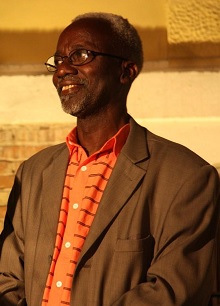
Filmmaker -Mali
A passionate cinephile from childhood, he attended secondary school in Dakar, and returned to Mali in 1960 after its national independence. His film career began as an assistant projectionist for a documentary on the arrest of Patrice Lumumba. This triggered his desire to create films of his own, and he obtained a scholarship to the Moscow school of Cinema and Television. In 1970 he returned to Mali once more, and joined the Ministry of Information as a cameraman, where he produced documentaries and short films. In 1972, he directed his first medium-length film, Cinq jours d’une vie (Five Days in a Life), which tells the story of a young man who becomes a thief living on the street. The film premiered at the Carthage Film Festival.
In 1974, he directed his first full-length film in the Bambara language, Den muso (The Girl), the story of a young mute girl who has been raped. The girl becomes pregnant, and is rejected both by her family and by the child›s father. Den Muso was banned by the Malian Minister of Culture, and Cissé was arrested and jailed for having accepted French funding.
In 1978, Cissé directed Baara (Work), which received the Yenenga›s Talon prize at FESPACO in 1979. In 1982, he directed Finyé (Wind), which tells the story of Malian youth rising up against the establishment. This earned him his second Yenenga›s Talon, at 1983›s FESPACO. Between 1984 and 1987, he directed Yeelen (Light), a coming-of-age film which won the Jury Prize at the 1987 Cannes Film Festival. In 1995, he produced Waati (Time) which competed for the Palme d›Or at the 1995 Cannes Film Festival. Cissé is president of UCECAO, the Union of Creators and Entrepreneurs of Cinema and Audiovisual Arts of Western Africa.
LAFF will screen Cissé’s latest documentary about Senegalese filmmaker Ousmane Sembène in addition to his classics Baara (Work), Finyé (The Wind) and Yeleen (Brightness).